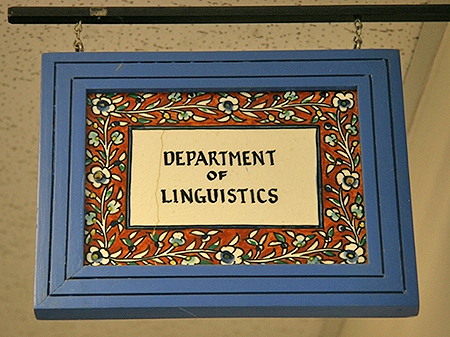
Linguistics ETDs
Publication Date
7-1-2016
Abstract
Complement relations are widely identified as a type of subordination, which is traditionally defined as the combination of an independent clause and a dependent clause. A complement clause is traditionally defined as a dependent clause that refers to an event or proposition functioning as an argument of a main clause. This study takes a non-traditional, functional-typological view of subordination and complement relations following the Asymmetry Assumption (Cristofaro 2003, cf. Langacker 1991). From this perspective, subordination is an asymmetrical relation between functionally-linked states of affairs (SoAs) such that the profile of one overrides the other. Complement relations are those in which the semantics of an SoA entails that another SoA is referred to. Cross-linguistic studies of complementation (Givón 1980, Noonan 1985/2007, and Cristofaro 2003) describe the semantics of complement-taking predicates (CTPs), the structural characteristics of complements, and correlations between them. Complement types are distinguished based on the semantic relation between CTP and complement, implied by the meaning of the CTP. Through an analysis of complement clauses within their larger context it will be shown how their discourse functions correlate with semantic CTP categories. The data consists of 25 oral monologic texts from a sample of 12 geographically and genetically diverse languages. A clause-by-clause analysis of each text revealed five major discourse functions of complement clauses: to express a secondary discourse sequence, facilitate the main progression of discourse, elaborate preceding or subsequent information, orient a situation within a discourse mode, and indicate a climactic or salient point in the discourse context. The findings of this study further reveal that complement relations expressing an intention toward or purpose of a particular course of events are found to pattern with certain discourse functions. This suggests that these semantic features deserve more attention in a classification of semantic CTP categories.
Language
English
Keywords
Typology, Discourse, Semantics, Text Analysis, Complex Predication
Document Type
Thesis
Degree Name
Linguistics
Level of Degree
Masters
Department Name
Department of Linguistics
First Committee Member (Chair)
Axelrod, Melissa
Second Committee Member
Vallejos, Rosa
Third Committee Member
None
Recommended Citation
Morrone, Lindsay. "Cross-linguistic Functions of Complement Clauses in Oral Monologic Texts." (2016). https://digitalrepository.unm.edu/ling_etds/43
